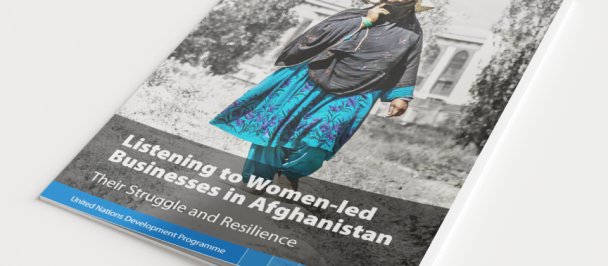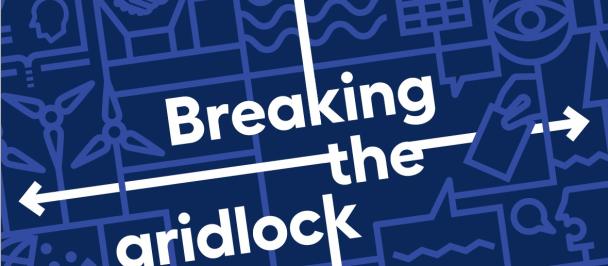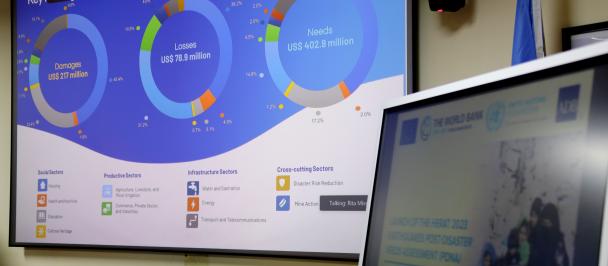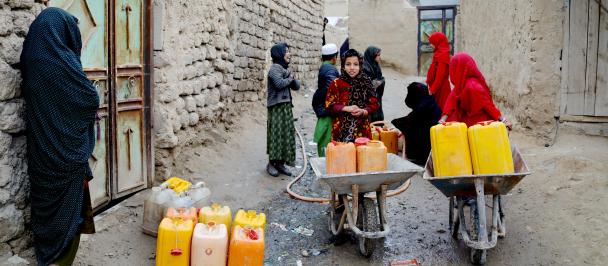Afghanistan has the technological infrastructure in place for interoperable digital payments, but its key participants were disconnected. Most financial services providers are concentrated in Kabul, preventing those at the last mile from accessing cash transfers using digital technologies. Digital cash transfers for cash disbursements can completely transform how we support Afghan families, its banking and finance sector, and open future opportunities
UNDP with UNCDF provides digital cash transfers to vulnerable families in Afghanistan
November 16, 2022
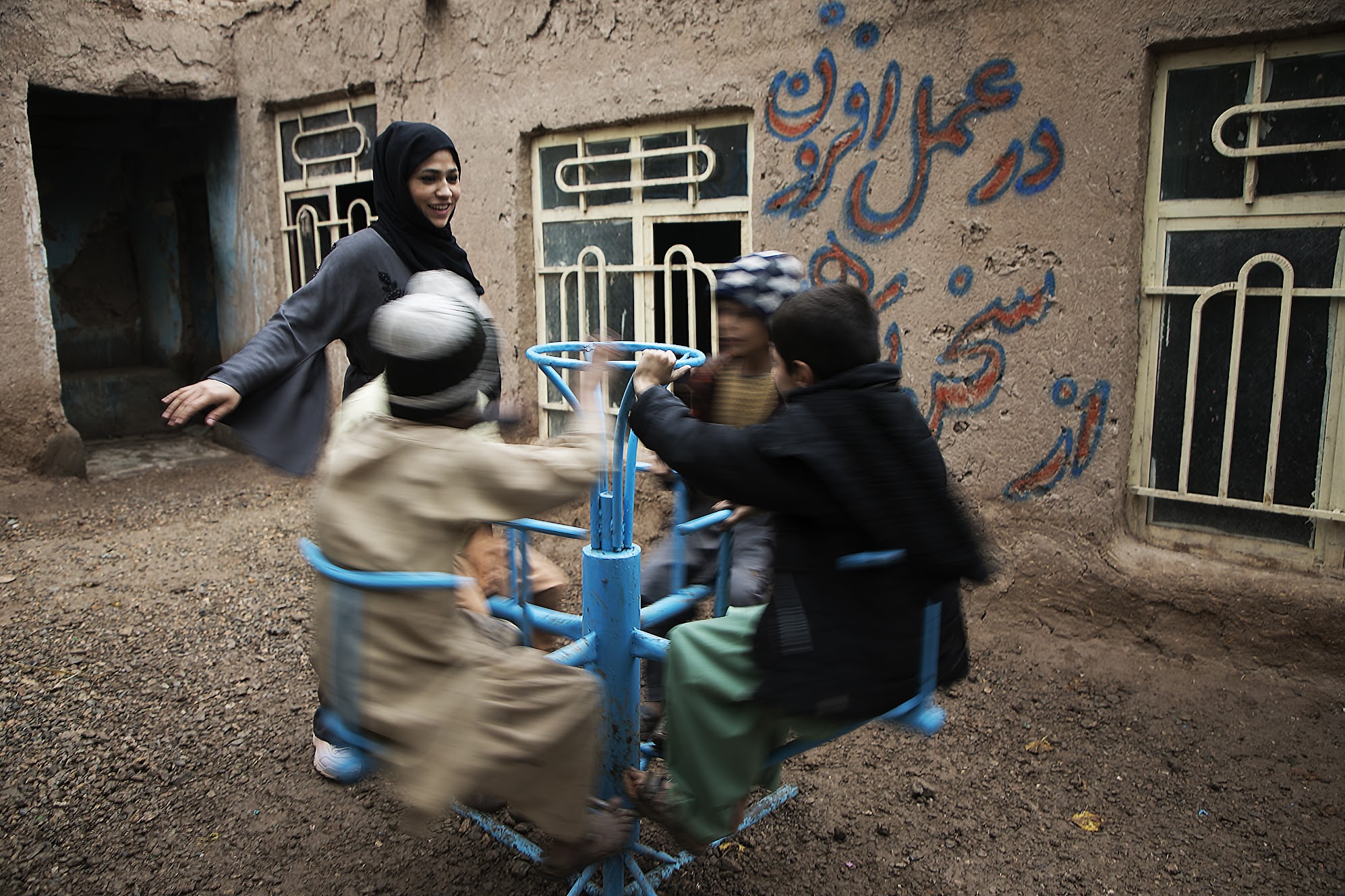
Kabul/ Bangkok
United Nations Development Programme (UNDP), in partnership with UN Capital Development Fund (UNCDF), is providing digital cash transfers for UNDP’s flagship programme, ABADEI.
This project, funded by UNDP and implemented by UNCDF, assessed Afghanistan’s banking and finance sector, identifying 12 financial services providers to deliver secure and efficient digital payments for the ABADEI programme participants with the potential to transform the traditional banking and financial sector in rural areas.
ABADEI is a UNDP-led, area-based approach that offers integrated solutions for the recovery and resilience of Afghan communities from crises. ABADEI puts livelihoods and dignified jobs at the center of the resolution, boosting the local economy, restoring service delivery and productivity through community infrastructure, helping build disaster and climate resilience, and enhancing bottom-up, inclusive community engagement and capacities.
UNDP, through UNCDF designed a digital payment system with the ABADEI partners to transfer close to US$600,000 to 2,745 people in nine provinces of Afghanistan with the five intergovernmental organizations. The project is expected to include other humanitarian and development partners in adopting the digital delivery of cash transfers, ultimately supporting greater financial inclusion and interoperability for financial services providers in Afghanistan.
UNDP with UNCDF is working with Care International, Danish Refugee Council, Islamic Relief, Norwegian Church Aid, and Swedish Committee for Afghanistan to test different digital channels, including credit cards, mobile wallets, e-vouchers, and QR codes for cash-for-work payments, small grants for micro, small and medium local enterprises, and cash assistance.
Abdallah Al Dardari, Resident Representative of UNDP Afghanistan, said, “Afghanistan has the technological infrastructure in place for interoperable digital payments, but its key participants were disconnected. Most financial services providers are concentrated in Kabul, preventing those at the last mile from accessing cash transfers using digital technologies. Digital cash transfers for cash disbursements can completely transform how we support Afghan families, its banking and finance sector, and open future opportunities.”
Maria Perdomo, the Regional Coordinator for Asia for UNCDF, said, “Digitalization of cash transfers, especially in the context of humanitarian crises, provides an opportunity for beneficiaries to receive aid promptly and the actors to realize transparently, responsibly, and inclusively. UNCDF is proud to work with UNDP, international non-government organizations, and financial service providers to leverage digital solutions for a more efficient and secure humanitarian response. The potential for impact is vast, yet investment in the digital payment ecosystem of Afghanistan is falling short.”
For further information, please contact:
Won-Na Cha, Communications Specialist
Afghanistan, UNDP
Georgii Nikolaenko, Learning, Knowledge Management, and Communications Analyst
Asia Regional Office, UNCDF
About United Nations Development Programme (UNDP)
The United Nations Development Programme (UNDP) partners with people at all levels of society to help build nations that can withstand crisis and drive and sustain growth that improves the quality of life for everyone. On the ground in more than 170 countries and territories, UNDP offers a global perspective and local insights to help empower lives and build resilient nations.
ABADEI
ABADEI is an area-based approach that offers integrated solutions for the recovery and resilience of Afghan communities from crises. ABADEI puts livelihoods and dignified jobs at the center of the resolution, boosting the local economy, restoring service delivery and productivity through community infrastructure, helping build disaster and climate resilience, and enhancing bottom-up, inclusive community engagement and capacities.
About UN Capital Development Fund
The UN Capital Development Fund makes public and private finance work for the poor in 46 least-developed countries (LDCs). UNCDF offers “last mile” finance models that unlock public and private resources, especially at the domestic level, to reduce poverty and support local economic development.
UNCDF’s financing models work through three channels: (1) inclusive digital economies, which connect individuals, households, and small businesses with financial eco-systems that catalyze participation in the local economy and provide tools to climb out of poverty and manage financial lives; (2) local development finance, which capacitates localities through fiscal decentralization, innovative municipal finance, and structured project finance to drive local economic expansion and sustainable development; and (3) investment finance, which provides catalytic financial structuring, de-risking, and capital deployment to drive SDG impact and domestic resource mobilization.
CARE
CARE International is a global confederation of 16 members, four candidates, and one affiliate organization working together to end poverty. In 2020, CARE worked in 104 countries worldwide, implementing 1,349 poverty-fighting development and humanitarian aid projects. We reached more than 92.3 million people directly and 433.4 million people indirectly.
Danish Refugee Council
Danish Refugee Council is a leading international humanitarian displacement organization supporting refugees and internally displaced persons during displacement, in exile, when settling and integrating into a new place, or upon return. We provide protection and life-saving humanitarian assistance. We support displaced persons in becoming self-reliant and included in hosting societies - and we work with communities, civil society, and responsible authorities to promote the protection of rights and peaceful coexistence.
Islamic Relief
Islamic Relief Worldwide (IRW) has worked in Afghanistan since 1999, supporting livelihoods, healthcare, and education in the most vulnerable communities across the country. IRW provides both emergency aid and long-term development.
Norwegian Church Aid
Norwegian Church Aid works with people and organizations worldwide in their struggle to eradicate poverty and injustice. We help those whose greatest needs, regardless of ethnicity, creed, political or religious affiliation.
Swedish Committee for Afghanistan
The Swedish Committee for Afghanistan has worked in Afghanistan for more than thirty-nine years. We will continue to do so even now. We have more than 6,000 employees working in different parts of the country.

 Locations
Locations